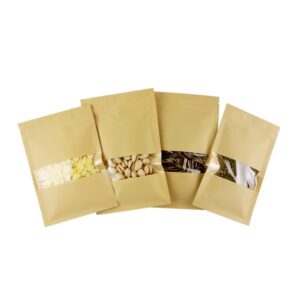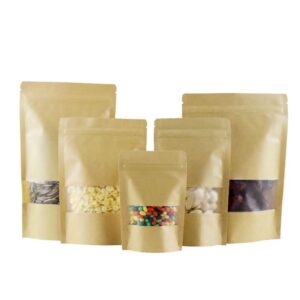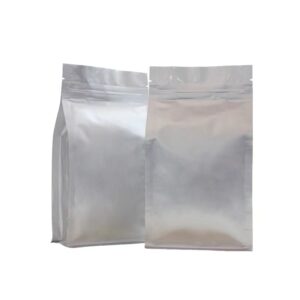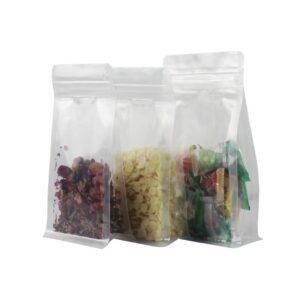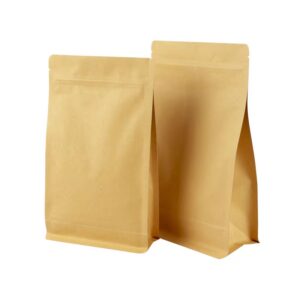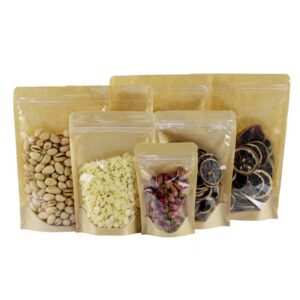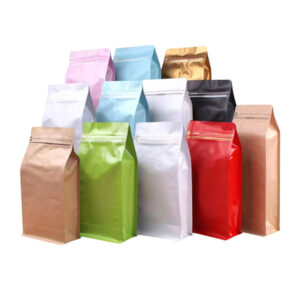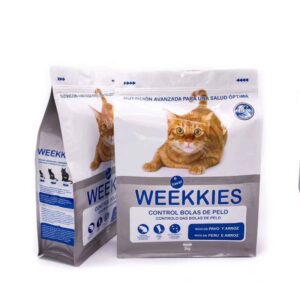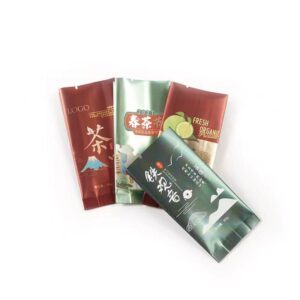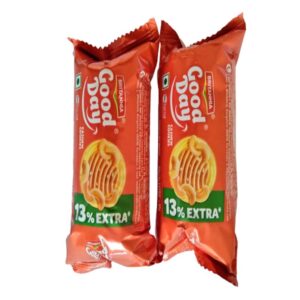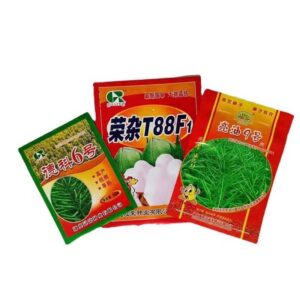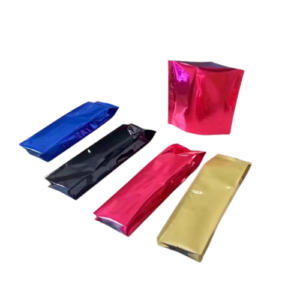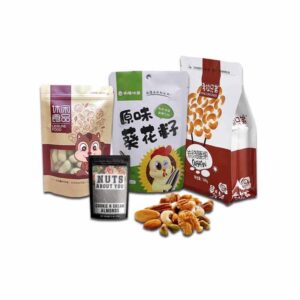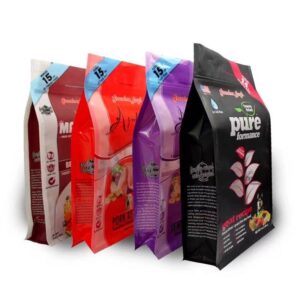What are flexible coffee bags?
Flexible coffee bags are pouches made of flexible materials such as plastic, foil, or a combination of both. These bags are designed to store and package coffee in a way that preserves its freshness, aroma, and flavor.
What are the benefits of using flexible coffee bags?
Flexible coffee bags offer a number of benefits, including better protection against moisture, oxygen, and light, which can all degrade the quality of coffee. They also provide a more efficient packaging solution, as they are lighter and take up less space than traditional rigid containers.
What materials are typically used to make flexible coffee bags?
Flexible coffee bags are typically made from a combination of plastic and aluminum foil. The plastic layer provides a barrier against moisture and oxygen, while the foil layer provides a barrier against light.
Can flexible coffee bags be recycled?
It depends on the type of material used to make the bag. Some flexible coffee bags are made from recyclable materials, such as polyethylene terephthalate (PET), which can be recycled. However, bags made from a combination of materials, such as plastic and aluminum foil, may be more difficult to recycle.
How should I store coffee in flexible bags?
To preserve the freshness of coffee in flexible bags, it is important to store them in a cool, dry place away from direct sunlight. Once the bag has been opened, the coffee should be consumed within a week or two.
Can I reuse flexible coffee bags?
It is not recommended to reuse flexible coffee bags, as they are designed for one-time use only. Reusing the bags can compromise the quality and freshness of the coffee.
Can flexible coffee bags be used for other products besides coffee?
Yes, flexible coffee bags can be used for a variety of products besides coffee, including tea, spices, nuts, and dried fruits. They are a versatile packaging solution that can help extend the shelf life of many different types of food products.
Are flexible coffee bags more environmentally friendly than traditional rigid containers?
In some cases, yes. Flexible coffee bags require less material to produce and transport, which can result in a smaller carbon footprint. However, it is important to consider the end-of-life disposal options for flexible bags, as they may not be as easy to recycle as traditional rigid containers.
How about your present product list?
- Stand up bag
- Flat bottom bag
- Lay flat zipper bag
- Side gusseted bag
- Three side seal bag
- Drip coffee bag
- Tin tie bag
- Spout bag
- BBQ
- Children resistant bag
- Coffee bag
- Pet food bag
- Snack food bag
- Tea packaging bag
- Dried fruit packaging bag
- Custom option
- Cannabis bag
- Agricultural product packaging bag
- Cosmetic & Personal Hygiene bag
- Pharmaceutical & Medical bag
What are flexible coffee bags?
Flexible coffee bags are pouches made of flexible materials such as plastic, foil, or a combination of both. These bags are designed to store and package coffee in a way that preserves its freshness, aroma, and flavor.
What are the benefits of using flexible coffee bags?
Flexible coffee bags offer a number of benefits, including better protection against moisture, oxygen, and light, which can all degrade the quality of coffee. They also provide a more efficient packaging solution, as they are lighter and take up less space than traditional rigid containers.
What materials are typically used to make flexible coffee bags?
Flexible coffee bags are typically made from a combination of plastic and aluminum foil. The plastic layer provides a barrier against moisture and oxygen, while the foil layer provides a barrier against light.
Can flexible coffee bags be recycled?
It depends on the type of material used to make the bag. Some flexible coffee bags are made from recyclable materials, such as polyethylene terephthalate (PET), which can be recycled. However, bags made from a combination of materials, such as plastic and aluminum foil, may be more difficult to recycle.
How should I store coffee in flexible bags?
To preserve the freshness of coffee in flexible bags, it is important to store them in a cool, dry place away from direct sunlight. Once the bag has been opened, the coffee should be consumed within a week or two.
Can I reuse flexible coffee bags?
It is not recommended to reuse flexible coffee bags, as they are designed for one-time use only. Reusing the bags can compromise the quality and freshness of the coffee.
Can flexible coffee bags be used for other products besides coffee?
Yes, flexible coffee bags can be used for a variety of products besides coffee, including tea, spices, nuts, and dried fruits. They are a versatile packaging solution that can help extend the shelf life of many different types of food products.
Are flexible coffee bags more environmentally friendly than traditional rigid containers?
In some cases, yes. Flexible coffee bags require less material to produce and transport, which can result in a smaller carbon footprint. However, it is important to consider the end-of-life disposal options for flexible bags, as they may not be as easy to recycle as traditional rigid containers.
How about your present product list?
- Stand up bag
- Flat bottom bag
- Lay flat zipper bag
- Side gusseted bag
- Three side seal bag
- Drip coffee bag
- Tin tie bag
- Spout bag
- BBQ
- Children resistant bag
- Coffee bag
- Pet food bag
- Snack food bag
- Tea packaging bag
- Dried fruit packaging bag
- Custom option
- Cannabis bag
- Agricultural product packaging bag
- Cosmetic & Personal Hygiene bag
- Pharmaceutical & Medical bag
What are flexible coffee bags?
Flexible coffee bags are pouches made of flexible materials such as plastic, foil, or a combination of both. These bags are designed to store and package coffee in a way that preserves its freshness, aroma, and flavor.
What are the benefits of using flexible coffee bags?
Flexible coffee bags offer a number of benefits, including better protection against moisture, oxygen, and light, which can all degrade the quality of coffee. They also provide a more efficient packaging solution, as they are lighter and take up less space than traditional rigid containers.
What materials are typically used to make flexible coffee bags?
Flexible coffee bags are typically made from a combination of plastic and aluminum foil. The plastic layer provides a barrier against moisture and oxygen, while the foil layer provides a barrier against light.
Can flexible coffee bags be recycled?
It depends on the type of material used to make the bag. Some flexible coffee bags are made from recyclable materials, such as polyethylene terephthalate (PET), which can be recycled. However, bags made from a combination of materials, such as plastic and aluminum foil, may be more difficult to recycle.
How should I store coffee in flexible bags?
To preserve the freshness of coffee in flexible bags, it is important to store them in a cool, dry place away from direct sunlight. Once the bag has been opened, the coffee should be consumed within a week or two.
Can I reuse flexible coffee bags?
It is not recommended to reuse flexible coffee bags, as they are designed for one-time use only. Reusing the bags can compromise the quality and freshness of the coffee.
Can flexible coffee bags be used for other products besides coffee?
Yes, flexible coffee bags can be used for a variety of products besides coffee, including tea, spices, nuts, and dried fruits. They are a versatile packaging solution that can help extend the shelf life of many different types of food products.
Are flexible coffee bags more environmentally friendly than traditional rigid containers?
In some cases, yes. Flexible coffee bags require less material to produce and transport, which can result in a smaller carbon footprint. However, it is important to consider the end-of-life disposal options for flexible bags, as they may not be as easy to recycle as traditional rigid containers.
How about your present product list?
- Stand up bag
- Flat bottom bag
- Lay flat zipper bag
- Side gusseted bag
- Three side seal bag
- Drip coffee bag
- Tin tie bag
- Spout bag
- BBQ
- Children resistant bag
- Coffee bag
- Pet food bag
- Snack food bag
- Tea packaging bag
- Dried fruit packaging bag
- Custom option
- Cannabis bag
- Agricultural product packaging bag
- Cosmetic & Personal Hygiene bag
- Pharmaceutical & Medical bag


